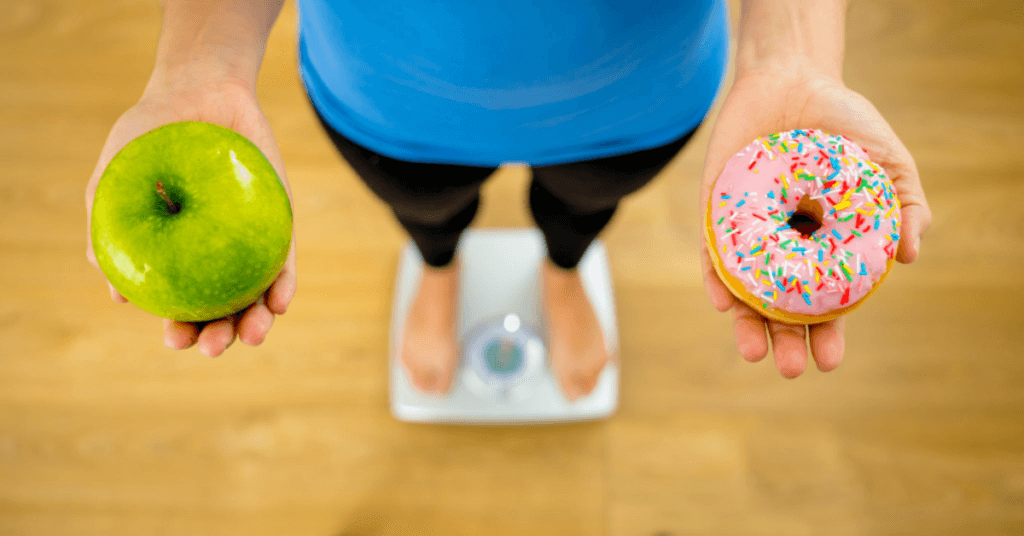
I. Understanding FSH and its Impact on Fertility
II. Lifestyle Changes to Improve FSH Levels
III. Dietary Modifications for Optimal FSH Levels
IV. The Role of Exercise in Enhancing Fertility
V. Natural Supplements to Boost FSH Levels
VI. Alternative Therapies for Improving FSH Levels
VII. Stress Management Techniques for Fertility Enhancement
VIII. Environmental Factors that Affect FSH Levels
IX. Seeking Professional Guidance for FSH Level Optimization
I. Understanding FSH and its Impact on Fertility
Follicle-stimulating hormone (FSH) plays a crucial role in the reproductive system, particularly in women. It is responsible for the growth and development of ovarian follicles, which contain the eggs. In men, FSH stimulates the production of sperm.
Understanding the impact of FSH on fertility is essential for individuals who are trying to conceive. FSH levels that are too high or too low can disrupt the delicate balance of the reproductive system and hinder the chances of successful conception.
High FSH levels in women may indicate a decline in ovarian reserve, which means that the ovaries are not producing enough viable eggs. This can make it more difficult to get pregnant. On the other hand, low FSH levels can also be problematic as it may indicate a lack of ovarian function or hormonal imbalance.
In men, high FSH levels can be a sign of testicular dysfunction, which can affect sperm production and quality. Low FSH levels in men may indicate a problem with the pituitary gland or hypothalamus, which can also impact fertility.
It is important to note that FSH levels can fluctuate throughout the menstrual cycle and can vary from person to person. However, maintaining optimal FSH levels is crucial for fertility.
By understanding the role of FSH in the reproductive system, individuals can take proactive steps to improve their FSH levels naturally. This can involve making lifestyle changes, adopting a healthy diet, incorporating exercise, and exploring alternative therapies. It is also important to manage stress levels and create a conducive environment for fertility.
In the following sections of this article, we will delve deeper into these topics and provide tips and strategies to help individuals improve their FSH levels naturally and enhance their chances of conception.

II. Lifestyle Changes to Improve FSH Levels
Making certain lifestyle changes can have a positive impact on FSH levels and overall fertility. Here are some tips to consider:
- Maintain a Healthy Weight: Being underweight or overweight can disrupt hormonal balance, including FSH levels. Aim for a healthy body weight by following a balanced diet and engaging in regular exercise.
- Manage Stress: Chronic stress can negatively affect fertility and hormone levels, including FSH. Incorporate stress management techniques such as meditation, yoga, deep breathing exercises, or engaging in hobbies that help you relax.
- Quit Smoking: Smoking has been linked to decreased fertility in both men and women. It can also affect hormone levels, including FSH. Quitting smoking can improve overall reproductive health and increase the chances of conception.
- Limit Alcohol Consumption: Excessive alcohol intake can disrupt hormone levels and impair fertility. It is advisable to limit alcohol consumption or avoid it altogether when trying to conceive.
- Get Sufficient Sleep: Lack of sleep can disrupt hormone production and affect fertility. Aim for 7-8 hours of quality sleep each night to support optimal hormone balance.
- Avoid Environmental Toxins: Exposure to certain environmental toxins, such as pesticides, chemicals, and pollutants, can disrupt hormone levels, including FSH. Minimize exposure to these toxins by using natural cleaning products, eating organic foods, and avoiding exposure to harmful chemicals.
- Practice Safe Sex: Sexually transmitted infections (STIs) can cause inflammation and damage to the reproductive organs, leading to fertility issues. Practice safe sex by using condoms and getting regular STI screenings to protect your reproductive health.
It is important to note that while these lifestyle changes can potentially improve FSH levels and enhance fertility, they may not be a guaranteed solution for everyone. It is always advisable to consult with a healthcare professional or fertility specialist for personalized advice and guidance based on your specific situation. They can provide further recommendations and interventions if necessary to optimize FSH levels and increase the chances of conception.

III. Dietary Modifications for Optimal FSH Levels
When it comes to improving FSH levels naturally, making dietary modifications can play a significant role. A well-balanced and nutritious diet can help regulate hormone levels and enhance reproductive health. Here are some dietary tips to consider:
- Eat a variety of fruits and vegetables: Incorporating a wide range of colorful fruits and vegetables into your diet can provide essential vitamins, minerals, and antioxidants that support hormonal balance. Aim for at least five servings of fruits and vegetables each day.
- Choose healthy fats: Include sources of healthy fats in your diet, such as avocados, nuts, seeds, and fatty fish like salmon. These fats are important for hormone production and can help improve FSH levels.
- Increase protein intake: Consuming an adequate amount of protein is crucial for hormone synthesis. Include lean sources of protein like chicken, turkey, fish, tofu, and legumes in your meals.
- Opt for whole grains: Replace refined grains with whole grains like quinoa, brown rice, and whole wheat bread. These provide essential nutrients and fiber that can help regulate hormone levels.
- Limit processed foods and sugar: Processed foods and added sugars can disrupt hormone balance and negatively impact fertility. Opt for whole, unprocessed foods as much as possible and limit your intake of sugary treats and beverages.
- Stay hydrated: Drinking enough water is essential for overall health, including reproductive health. Aim to drink at least eight glasses of water per day to stay properly hydrated.
- Consider fertility-boosting foods: Some foods are believed to have fertility-enhancing properties. These include foods rich in antioxidants like berries, leafy greens, and nuts, as well as foods high in omega-3 fatty acids like flaxseeds and walnuts.
Remember, dietary modifications alone may not be enough to significantly improve FSH levels. It is important to adopt a holistic approach that includes other lifestyle changes, supplements, and alternative therapies, as mentioned in the article outline.
Always consult with a healthcare professional or a fertility specialist before making any significant changes to your diet or lifestyle. They can provide personalized guidance and ensure that your dietary modifications align with your specific needs and health conditions.
By making these dietary modifications and incorporating other natural strategies, you can optimize your FSH levels and increase your chances of fertility.

IV. The Role of Exercise in Enhancing Fertility
Exercise plays a crucial role in enhancing fertility and can have a positive impact on FSH levels. Regular physical activity has been shown to improve hormonal balance, increase blood flow to the reproductive organs, and promote overall reproductive health.
Engaging in moderate-intensity exercises such as brisk walking, jogging, swimming, or cycling can help regulate FSH levels. These activities stimulate the release of endorphins, which can reduce stress and promote hormonal balance. Additionally, exercise helps maintain a healthy body weight, which is important for fertility as excessive body fat can disrupt hormonal levels.
It is important to note that excessive exercise or intense workouts can have the opposite effect and negatively impact fertility. Overtraining can lead to hormonal imbalances, irregular menstrual cycles, and even amenorrhea (absence of menstruation). Therefore, it is crucial to find a balance and engage in moderate exercise routines.
In addition to cardiovascular exercises, incorporating strength training into your fitness routine can also be beneficial for fertility. Strength training helps build lean muscle mass, which can improve insulin sensitivity and regulate hormone levels. It is recommended to include exercises that target the major muscle groups, such as squats, lunges, deadlifts, and push-ups.
Yoga and other mind-body practices can also be beneficial for fertility. These practices help reduce stress, improve relaxation, and promote hormonal balance. Certain yoga poses, such as the butterfly pose and the legs-up-the-wall pose, can specifically target the reproductive organs and enhance blood flow to the pelvic area.
It is important to consult with a healthcare professional or a fertility specialist before starting any new exercise regimen, especially if you have any underlying health conditions or concerns. They can provide personalized recommendations based on your specific needs and help ensure that your exercise routine is safe and effective for enhancing fertility.
In conclusion, incorporating regular exercise into your daily routine can have a positive impact on FSH levels and enhance fertility. Engaging in moderate-intensity exercises, strength training, and mind-body practices can help regulate hormones, improve blood flow to the reproductive organs, and promote overall reproductive health. Remember to find a balance and avoid excessive exercise, as it can have negative effects on fertility.

V. Natural Supplements to Boost FSH Levels
When it comes to improving FSH levels naturally, incorporating certain supplements into your daily routine can be beneficial. These supplements can help regulate hormone levels and support reproductive health. Here are some natural supplements that may help boost FSH levels:
- Vitex: Also known as chasteberry, vitex is a popular herb that has been used for centuries to support female reproductive health. It can help regulate hormone levels, including FSH, and promote ovulation.
- Maca: Maca root is a powerful adaptogen that can help balance hormone levels in both men and women. It has been shown to improve fertility by supporting the production of FSH and other reproductive hormones.
- Coenzyme Q10: This antioxidant plays a crucial role in energy production within the cells. It has been found to improve egg quality and ovarian function, which can indirectly affect FSH levels.
- Omega-3 fatty acids: Found in fish oil and flaxseed oil, omega-3 fatty acids have anti-inflammatory properties and can help regulate hormone levels. They also support overall reproductive health.
- Vitamin D: Adequate levels of vitamin D are essential for reproductive health. Research has shown that low levels of vitamin D are associated with increased FSH levels and decreased fertility. Consider getting your vitamin D levels checked and supplementing if necessary.
- Zinc: Zinc is an important mineral for fertility and hormone regulation. It plays a role in the production of FSH and other reproductive hormones. Foods rich in zinc include oysters, beef, pumpkin seeds, and spinach.
It’s important to note that while these supplements may help improve FSH levels, they should be used under the guidance of a healthcare professional. They may interact with certain medications or have side effects, so it’s best to consult with a healthcare provider before starting any new supplements.
In addition to incorporating these supplements, it’s crucial to maintain a healthy lifestyle, eat a balanced diet, manage stress levels, and get regular exercise. These lifestyle factors can also have a positive impact on FSH levels and overall fertility. Remember, it’s always best to seek professional guidance when it comes to optimizing your FSH levels and enhancing your reproductive health.

VI. Alternative Therapies for Improving FSH Levels
In addition to lifestyle changes, dietary modifications, and natural supplements, alternative therapies can also play a role in improving FSH levels naturally. These therapies focus on addressing the underlying causes of hormonal imbalances and promoting overall reproductive health. Here are some alternative therapies that may help improve FSH levels:
- Acupuncture: Acupuncture is an ancient Chinese practice that involves the insertion of thin needles into specific points on the body. It is believed to stimulate the flow of energy and restore balance in the body. Acupuncture has been shown to regulate hormone levels, including FSH, and improve fertility outcomes.
- Herbal Medicine: Certain herbs have been traditionally used to support reproductive health and balance hormones. Examples include chasteberry, maca root, and red clover. However, it is important to consult with a qualified herbalist or healthcare provider before using any herbal remedies, as they may interact with medications or have contraindications.
- Yoga and Meditation: Stress can have a negative impact on fertility and hormone levels. Practicing yoga and meditation can help reduce stress and promote relaxation. Certain yoga poses, such as the butterfly pose and the legs-up-the-wall pose, are believed to stimulate the reproductive organs and improve blood flow to the pelvic area.
- Massage Therapy: Massage therapy can help reduce stress, improve circulation, and promote overall well-being. Specific techniques, such as abdominal massage, may help improve blood flow to the reproductive organs and support hormonal balance.
- Mind-Body Techniques: Techniques such as hypnosis, visualization, and guided imagery can help reduce stress and promote a positive mindset. These techniques can be used to enhance fertility by reducing anxiety and creating a supportive mental and emotional environment for conception.
It is important to note that alternative therapies should be used in conjunction with medical guidance and not as a substitute for professional care. It is recommended to consult with a healthcare provider or a fertility specialist before starting any alternative therapy to ensure it is safe and appropriate for your individual situation.
By incorporating alternative therapies into your fertility journey, you can take a holistic approach to improving FSH levels and enhancing your chances of conception. These therapies can help support hormonal balance, reduce stress, and promote overall reproductive health. Remember to be patient and consistent with your chosen therapies, as it may take time to see results.

VII. Stress Management Techniques for Fertility Enhancement
Stress can have a significant impact on our overall health, including our reproductive health. When it comes to fertility, high levels of stress can disrupt the delicate balance of hormones in our bodies, including FSH. Therefore, it is important to incorporate stress management techniques into our daily lives to optimize FSH levels and increase our chances of conception.
One effective stress management technique is mindfulness meditation. This practice involves focusing your attention on the present moment and accepting it without judgment. Research has shown that regular mindfulness meditation can reduce stress levels and improve overall well-being. By reducing stress, mindfulness meditation can help regulate FSH levels and enhance fertility.
Another stress management technique that can be beneficial for fertility is yoga. Yoga combines physical postures, breathing exercises, and meditation to promote relaxation and reduce stress. Studies have shown that practicing yoga regularly can lower stress levels and improve reproductive health. It can also help regulate FSH levels and increase the chances of conception.
In addition to mindfulness meditation and yoga, other stress management techniques such as deep breathing exercises, progressive muscle relaxation, and guided imagery can also be helpful. These techniques can help activate the body’s relaxation response, reduce stress hormones, and promote a sense of calm and well-being.
It is important to note that stress management techniques may not only improve FSH levels but also enhance overall fertility. By reducing stress, these techniques can improve the quality of eggs and sperm, regulate menstrual cycles, and increase the chances of successful conception.
In conclusion, stress management techniques play a crucial role in optimizing FSH levels and enhancing fertility. Incorporating practices such as mindfulness meditation, yoga, deep breathing exercises, and progressive muscle relaxation into your daily routine can help reduce stress levels and improve reproductive health. By managing stress effectively, you can increase your chances of conception and improve your overall well-being.

VIII. Environmental Factors that Affect FSH Levels
When it comes to fertility and FSH levels, it’s important to consider the impact of environmental factors. Our surroundings can have a significant influence on our reproductive health, including the production and regulation of FSH. Here are some key environmental factors to be aware of:
- Chemical Exposure: Exposure to certain chemicals in our environment, such as pesticides, herbicides, and industrial pollutants, can disrupt hormonal balance and interfere with FSH production. It’s important to minimize exposure to these chemicals by choosing organic foods, using natural cleaning products, and avoiding contact with harmful substances.
- Endocrine Disruptors: Endocrine disruptors are substances that mimic or interfere with the body’s hormones. They can be found in everyday products like plastics, cosmetics, and household cleaners. These disruptors can negatively impact FSH levels and overall reproductive health. Opt for BPA-free products, choose natural and organic personal care items, and be mindful of the products you use in your home.
- Air Quality: Poor air quality can also affect fertility and hormone levels. Exposure to air pollution, such as vehicle emissions and industrial pollutants, has been linked to hormonal imbalances and reduced fertility. If you live in an area with poor air quality, consider using air purifiers in your home and minimizing outdoor activities during times of high pollution.
- Stress and Emotional Well-being: While not directly an environmental factor, chronic stress and emotional well-being can impact FSH levels. High levels of stress can disrupt hormonal balance and interfere with reproductive function. It’s important to prioritize self-care, manage stress through relaxation techniques, and seek support when needed.
By being mindful of these environmental factors and making conscious choices to minimize exposure to harmful substances, you can create a healthier environment for your reproductive system. Remember, every small change can make a difference in optimizing your FSH levels and increasing your chances of fertility.

IX. Seeking Professional Guidance for FSH Level Optimization
While there are various natural strategies and remedies that can potentially improve FSH levels, it is important to recognize that seeking professional guidance is crucial for optimizing fertility and addressing any underlying issues. Fertility specialists, reproductive endocrinologists, and naturopathic doctors can provide valuable insights and personalized recommendations based on individual circumstances.
1. Consultation and Evaluation: When experiencing fertility challenges, it is advisable to schedule a consultation with a fertility specialist or reproductive endocrinologist. They will conduct a thorough evaluation, including assessing FSH levels, hormone balance, and overall reproductive health. This evaluation will help identify any underlying causes of infertility and guide the development of an appropriate treatment plan.
2. Hormone Therapy: In some cases, hormone therapy may be recommended to regulate FSH levels. This may involve the use of medications such as Clomiphene citrate or Letrozole to stimulate ovulation and improve fertility. Hormone therapy should always be prescribed and monitored by a healthcare professional.
3. Acupuncture and Traditional Chinese Medicine: Acupuncture and Traditional Chinese Medicine (TCM) have been used for centuries to enhance fertility. Seeking the guidance of a licensed acupuncturist or TCM practitioner can provide additional support in regulating FSH levels and improving reproductive health.
4. Nutritional Counseling: A fertility specialist or naturopathic doctor can provide personalized nutritional counseling to optimize FSH levels. They can recommend specific dietary modifications, including the incorporation of fertility-boosting foods and the avoidance of certain substances that may negatively impact fertility.
5. Emotional Support: Dealing with infertility can be emotionally challenging. Seeking the support of a therapist or counselor who specializes in fertility issues can be beneficial. They can provide guidance on coping strategies, stress management techniques, and emotional well-being during the fertility journey.
It is important to remember that every individual’s fertility journey is unique, and what works for one person may not work for another. Seeking professional guidance ensures that the most appropriate and effective strategies are implemented to optimize FSH levels and increase the chances of conception. By combining natural remedies with expert advice, individuals can take proactive steps towards improving their fertility and achieving their dream of starting a family.
– Natural ways to improve FSH levels
– Increase fertility naturally
– Regulating FSH levels naturally
– Lifestyle changes for optimal FSH levels
– Dietary modifications for improving FSH levels
– Supplements for enhancing FSH levels
– Alternative therapies for FSH regulation
– Reproductive health tips for improving FSH levels
– Natural remedies for boosting fertility
– Strategies to optimize FSH levels naturally




